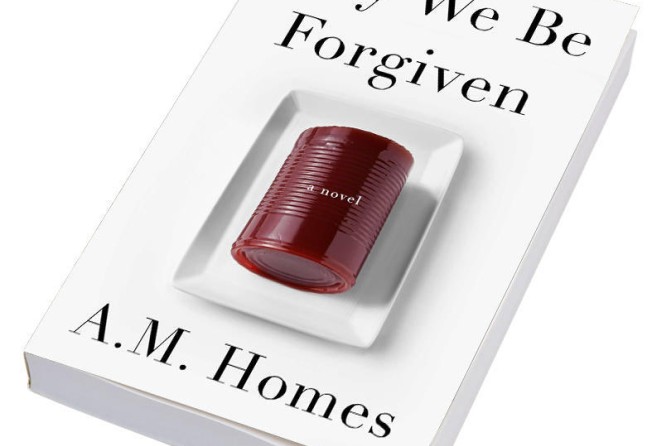Madcap intensity drives satire of disconnected modern world

May We Be Forgiven
by A.M. Homes
Viking/Granta
Bron Sibree
This is a satire on steroids. A biting examination of 21st-century American suburban life that oscillates between acerbity and poignancy, between the ridiculous, the laugh-aloud funny and the plainly absurd, with an intensity that catches at your throat.
By the time you've read the first paragraph you'll understand just why it is A.M. Homes is famous for her brave, darkly original, often controversial, beyond-funny fiction, for the kind of novels that enthral, terrify and mesmerise from the get-go.
May We Be Forgiven, her sixth novel and her first in six years, begins with an unnamed narrator proffering his recipe for disaster. He cites last year's Thanksgiving as its warning signal, when, carrying plates back and forth from the kitchen at "their" house - "the edges of my fingers dipping into unnameable goo" - he spies his brother, George, picking turkey from his teeth and talking about himself. "With every trip back and forth from the dining room to the kitchen, I hated him more," says our narrator, recalling the occasion with mordant and cinematic precision.
The blond, preternaturally confident George is a TV executive who can't bear to be alone, so there's a TV in every room. His children, Nathaniel, 12, and Ashley, 11, sit hunched at the table, eyes focused only on small screens, "texting friends no one has ever seen and killing digitised terrorists". Neither George, his children nor their guests, "stiff-backed and hair-sprayed like Ken and Barbie", have noticed that George's wife, Jane, has been cooking, cleaning and serving all day.
Homes can convey the detail, action and emotional weight of a scene with an economy that is dazzling. Even the heirloom turkey has been "rubbed, herbed into submission, into thinking it wasn't so bad to be decapitated, to be stuffed up the ass with breadcrumbs and cranberries in some annual rite". This masterfully rendered scene culminates with Jane making a pass at George's brother just before she serves dessert, leaving him with a cup of coffee and a dose of unrequited lust until February.
By the time we learn the narrator's name, Harry Silver, 17 pages into this 480-page novel, he has already slept with his long-suffering sister-in-law and George has been carried off to a mental institution after bludgeoning Jane to near death in a rage at finding her in bed with his brother. She later dies in hospital.
All this takes place three days after George kills two people in a traffic accident, rendering the only survivor, a young boy, an orphan.
Harry's wife, Claire, shocked by his transgression, now demands a divorce; they have no children. So Harry stays in George's mansion in Westchester, New York, tending George's affairs and taking reluctant responsibility for his brother's children, his pets and his roses.
But just when you think Harry can't mess up his life any more or that the plot of the novel can't get any zanier, Homes plunges him even deeper into the ordure. What ensues is a series of catastrophes in which Harry tries to do the right thing, but blunders into mayhem and ultimately onto a new way of being - and a redemption of sorts. He even tries to do the right thing by his brother, meeting with various family members - including their mother who's more concerned about a feud with their aunt - to try to understand the root of George's anger problems.
Pushing the absurdist envelope is a Homes trademark and to that end there are appearances by real people such as Julie Nixon Eisenhower, Don de Lillo and John Cheever.
Homes is a genius at conveying the quotidian minutia of daily existence in 21st-century suburban, deeply litigatory America, the endless run-ins with institutions, with technology and with ever more fraught and disturbed people. Even the meals-on-wheels people have attitude in this world in which Harry finds himself unmoored: a world "so new, so random and disassociated … that it puts us all in danger. We talk online, we 'friend' each other … we mistake almost anything for a relationship, a community of sorts, yet when we are with our families, our communities, we short-circuit and immediately dive back into the digitised version".
At the core of this satire that so artfully rakes over the ashes of the American dream is the lingering ideal of boundless possibility, of a new, ever more inventive America where the modern family, the modern community can be recast and re-invigorated. Harry genuinely bonds with George's children, adopts the boy his brother orphaned, and even takes on the senile parents of a casual lover.
In the end, May We Be Forgiven becomes a prayer for not just the redemptive power of personal forgiveness, but for an altogether more communal transformation.